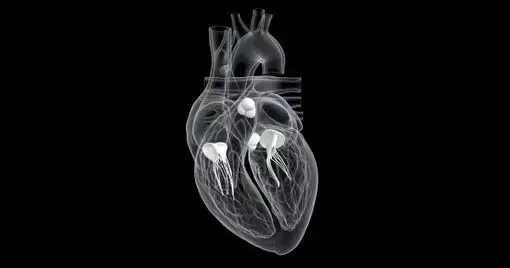- Home
- Medical news & Guidelines
- Anesthesiology
- Cardiology and CTVS
- Critical Care
- Dentistry
- Dermatology
- Diabetes and Endocrinology
- ENT
- Gastroenterology
- Medicine
- Nephrology
- Neurology
- Obstretics-Gynaecology
- Oncology
- Ophthalmology
- Orthopaedics
- Pediatrics-Neonatology
- Psychiatry
- Pulmonology
- Radiology
- Surgery
- Urology
- Laboratory Medicine
- Diet
- Nursing
- Paramedical
- Physiotherapy
- Health news
- Fact Check
- Bone Health Fact Check
- Brain Health Fact Check
- Cancer Related Fact Check
- Child Care Fact Check
- Dental and oral health fact check
- Diabetes and metabolic health fact check
- Diet and Nutrition Fact Check
- Eye and ENT Care Fact Check
- Fitness fact check
- Gut health fact check
- Heart health fact check
- Kidney health fact check
- Medical education fact check
- Men's health fact check
- Respiratory fact check
- Skin and hair care fact check
- Vaccine and Immunization fact check
- Women's health fact check
- AYUSH
- State News
- Andaman and Nicobar Islands
- Andhra Pradesh
- Arunachal Pradesh
- Assam
- Bihar
- Chandigarh
- Chattisgarh
- Dadra and Nagar Haveli
- Daman and Diu
- Delhi
- Goa
- Gujarat
- Haryana
- Himachal Pradesh
- Jammu & Kashmir
- Jharkhand
- Karnataka
- Kerala
- Ladakh
- Lakshadweep
- Madhya Pradesh
- Maharashtra
- Manipur
- Meghalaya
- Mizoram
- Nagaland
- Odisha
- Puducherry
- Punjab
- Rajasthan
- Sikkim
- Tamil Nadu
- Telangana
- Tripura
- Uttar Pradesh
- Uttrakhand
- West Bengal
- Medical Education
- Industry
Posterior left pericardiotomy effective in reducing AF after cardiac surgery: Lancet

Posterior left pericardiotomy is effective in reducing the incidence of atrial fibrillation after cardiac surgery, according to a recent study published in the Lancet.
Atrial fibrillation is the most common complication after cardiac surgery and is associated with extended in-hospital stay and increased adverse outcomes, including death and stroke. Pericardial effusion is common after cardiac surgery and can trigger atrial fibrillation. The researchers tested the hypothesis that posterior left pericardiotomy, a surgical manoeuvre that drains the pericardial space into the left pleural cavity, might reduce the incidence of atrial fibrillation after cardiac surgery.
In this adaptive, randomised, controlled trial, we recruited adult patients (aged ≥18 years) undergoing elective interventions on the coronary arteries, aortic valve, or ascending aorta, or a combination of these, performed by members of the Department of Cardiothoracic Surgery from Weill Cornell Medicine at the New York-Presbyterian Hospital in New York, NY, USA. Patients were eligible if they had no history of atrial fibrillation or other arrhythmias or contraindications to the experimental intervention. Eligible patients were randomly assigned (1:1), stratified by CHA2DS2-VASc score and using a mixed-block randomisation approach (block sizes of 4, 6, and 8), to posterior left pericardiotomy or no intervention. Patients and assessors were blinded to treatment assignment. Patients were followed up until 30 days after hospital discharge. The primary outcome was the incidence of atrial fibrillation during postoperative in-hospital stay, which was assessed in the intention-to-treat (ITT) population. Safety was assessed in the as-treated population.
The Findings are:
Between Sept 18, 2017, and Aug 2, 2021, 3601 patients were screened and 420 were included and randomly assigned to the posterior left pericardiotomy group (n=212) or the no intervention group (n=208; ITT population). The median age was 61·0 years (IQR 53·0-70·0), 102 (24%) patients were female, and 318 (76%) were male, with a median CHA2DS2-VASc score of 2·0 (IQR 1·0-3·0). The two groups were balanced with respect to clinical and surgical characteristics. No patients were lost to follow-up and data completeness was 100%. Three patients in the posterior left pericardiotomy group did not receive the intervention. In the ITT population, the incidence of postoperative atrial fibrillation was significantly lower in the posterior left pericardiotomy group than in the no intervention group (37 [17%] of 212 vs 66 [32%] of 208 [p=0·0007]; odds ratio adjusted for the stratification variable 0·44 [95% CI 0·27-0·70; p=0·0005]). Two (1%) of 209 patients in the posterior left pericardiotomy group and one (<1%) of 211 in the no intervention group died within 30 days after hospital discharge. The incidence of postoperative pericardial effusion was lower in the posterior left pericardiotomy group than in the no intervention group (26 [12%] of 209 vs 45 [21%] of 211; relative risk 0·58 [95% CI 0·37-0·91]). Postoperative major adverse events occurred in six (3%) patients in the posterior left pericardiotomy group and in four (2%) in the no-intervention group. No posterior left pericardiotomy related complications were seen.
Thus, the researchers concluded that posterior left pericardiotomy is highly effective in reducing the incidence of atrial fibrillation after surgery on the coronary arteries, aortic valve, or ascending aorta, or a combination of these without additional risk of postoperative complications.
Reference:
Posterior left pericardiotomy for the prevention of atrial fibrillation after cardiac surgery: an adaptive, single-centre, single-blind, randomised, controlled trial by Mario Gaudino et al. published in the Lancet.
https://pubmed.ncbi.nlm.nih.
Dr. Shravani Dali has completed her BDS from Pravara institute of medical sciences, loni. Following which she extensively worked in the healthcare sector for 2+ years. She has been actively involved in writing blogs in field of health and wellness. Currently she is pursuing her Masters of public health-health administration from Tata institute of social sciences. She can be contacted at editorial@medicaldialogues.in.
Dr Kamal Kant Kohli-MBBS, DTCD- a chest specialist with more than 30 years of practice and a flair for writing clinical articles, Dr Kamal Kant Kohli joined Medical Dialogues as a Chief Editor of Medical News. Besides writing articles, as an editor, he proofreads and verifies all the medical content published on Medical Dialogues including those coming from journals, studies,medical conferences,guidelines etc. Email: drkohli@medicaldialogues.in. Contact no. 011-43720751


